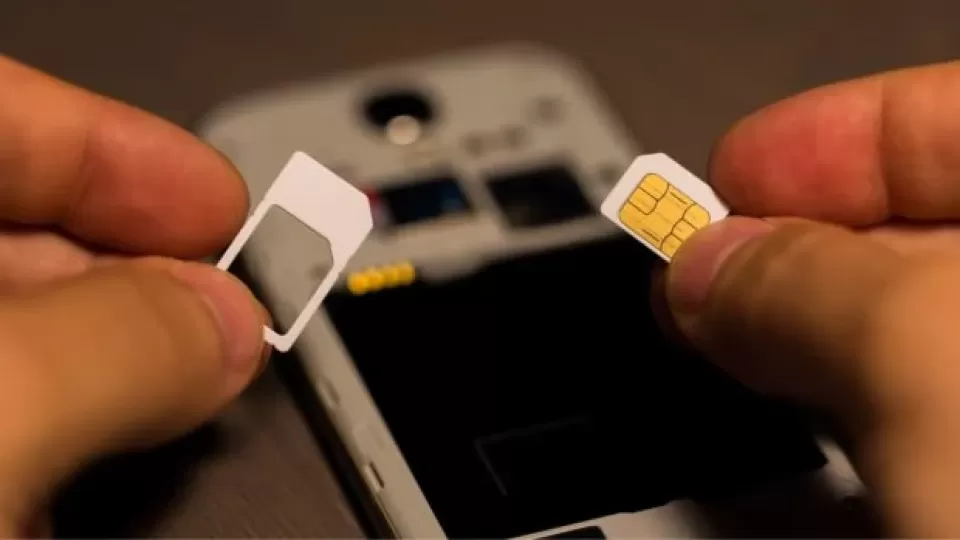April 19, 2022
MANILA — Last Friday (April 15), as the proposed law on SIM card registration was vetoed, Malacañang said President Rodrigo Duterte “was constrained to disagree” with one of its provisions—on social media registration.
Malacañang said the provision, which was not part of the original version of the bill, was “duly defined, discussed, or threshed out”.
While the bill was seen to lessen electronic communication-aided crimes, the President said the provision on social media registration could threaten constitutionally protected rights.
The “Digital 2022” report of the DataReportal, which gives data, insights and trends on the internet, revealed that there were 92.05 million social media users in the Philippines in January 2022.
It said there are 83.85 million Facebook users; 18.65 million Instagram users; and 10.50 million Twitter users.

GRAPHIC: Kurt Dela Peña
This, as data consumer company Statista said that there were around 169 million mobile subscribers in the Philippines as of 2019.
DataReportal said that the number of social media users in the Philippines was equivalent to 82.4 percent of the total population, however, it stressed that social media users may not represent unique individuals.

GRAPHIC: Kurt Dela Peña
The provision that triggered the veto, as Deputy Speaker Wes Gatchalian said, was a “last-minute insertion” by Senate Minority Leader Franklin Drilon. “[It is] not in line with the essence of this bill,” he said.
Drilon said on Saturday (April 16) that the provision on social media registration was intended to address “anonymity” on the internet which made an “environment for troll accounts and fake news” to thrive.

GRAPHIC: Kurt Dela Peña
However, the President, as Malacañang said, was concerned that the provision, as it stands, “may give rise to a situation of dangerous state intrusion and surveillance threatening many constitutionally protected rights.”
The bill
It was last Feb. 2 when the two chambers of Congress—the Senate and the House of Representatives—ratified the bicameral conference committee report on the disagreeing provisions of Senate Bill No. 2395 and House Bill No. 5793.
The proposed law, which carried a provision against “anonymity” on the internet, said that an individual, when creating a social media account, should give his or her real name and phone number to the provider.
Likewise, the SIM card registration bill would have required all public telecommunications entities (PTEs) to register SIM cards as a prerequisite for sale and activation.
Sen. Grace Poe, the chairperson of the Senate Committee on Public Services, said then that all existing SIM card subscribers with active services should register within 180 days from the effectivity of the proposed law.
“PTEs will be authorized to deactivate SIM card numbers that have not been registered within the prescribed period,” she said.
She said a provision was likewise inserted “to keep relevant data and information for 10 years from the time the end-user deactivates his or her mobile number or social media account.”
The collected data will be forwarded and kept by the PTE to a centralized database, which shall strictly serve as a register for processing, activation or deactivation and shall not be for any other purpose.
Drilon’s provision
There were 15 bills filed and discussed in the House of Representatives and seven in the Senate regarding the registration of SIM cards. These bills were then consolidated into Senate Bill No. 2395 and House Bill No. 5793.
For Gatchalian, while the provision on social media registration was “equally important,” he said it should have been closely studied first and filed as a separate bill.
He said on Saturday (April 16), “I agree with the decision of the President even if I am the principal author and a staunch advocate since the 16th Congress.”
“There is nothing in the bill specifying how to register such a broad environment (internet),” he said.
As the proposed law was vetoed, Drilon said “the President lets trolls thrive, spread lies and hate, and fuel discord and division.
“Political trolling as we’ve seen these days is a thriving business. This veto is a big win for troll farms […] This veto is meant to protect trolls. Is it a parting gift?,” he said.
The veto process
Before a bill becomes law, the Nicolas and De Vega Law Offices said legislation undergoes a process in both the House of Representatives and the Senate.
When the bicameral conference committee report is ratified by both chambers of Congress, copies of the bill are transmitted to the President.
If the legislation is signed by the President, the same is assigned an “RA” number and transmitted to the House of Representatives or the Senate, depending on where it originated.
However, if the President decides to veto the bill, the same, together with a message indicating the reason for the veto, is transmitted to the House of Representatives or the Senate, depending on where it originated.
The message is included in the Order of Business. If Congress decides to override the veto, the House and the Senate shall proceed separately to reconsider the bill or the vetoed items of the bill.
If the bill or its vetoed items is passed by a vote of two-thirds of the members each of the House of Representatives and the Senate, the bill or items shall become law.
Poe said she was hoping that the 18th Congress would move to override the President’s veto, saying that “we count on Congress to act in a timely manner in reconsidering the bill for approval in accordance with the legislative process.”
“Each day without the safeguards from the measure makes our people vulnerable to ripoffs that take away their money and cause them anxiety; the onslaught of cybercrimes and fake news that tear away the fabric of our democracy,” she said.
However, Congress is on recess from Feb. 5 to May 22. The session will resume only on May 23.


